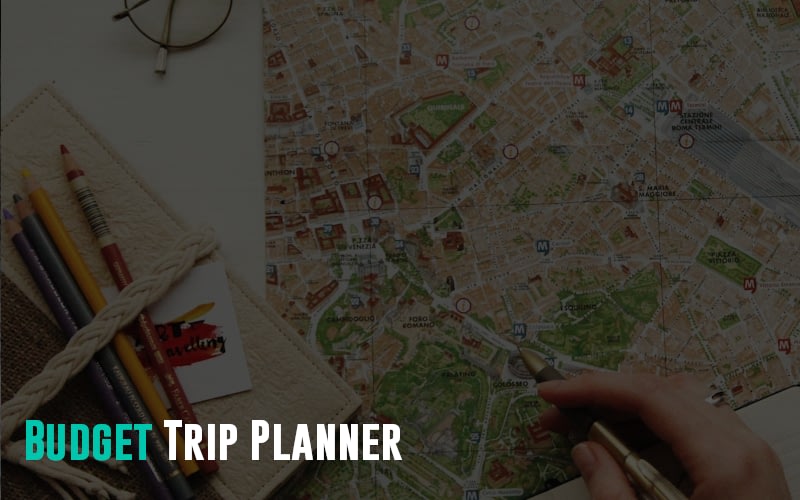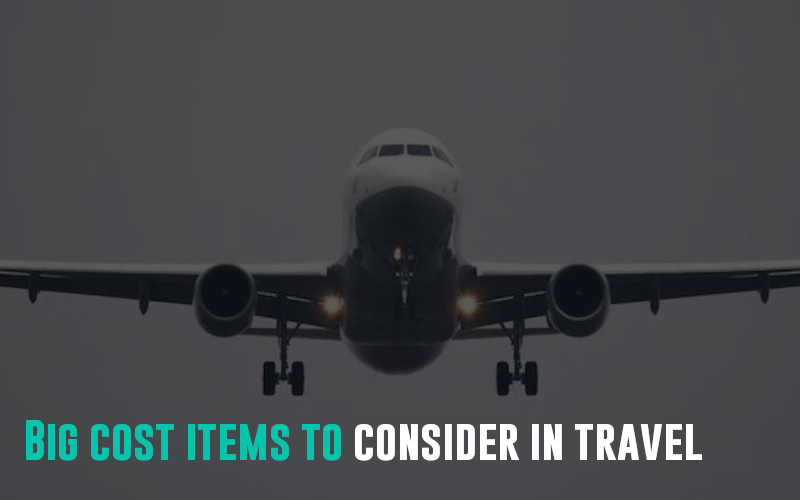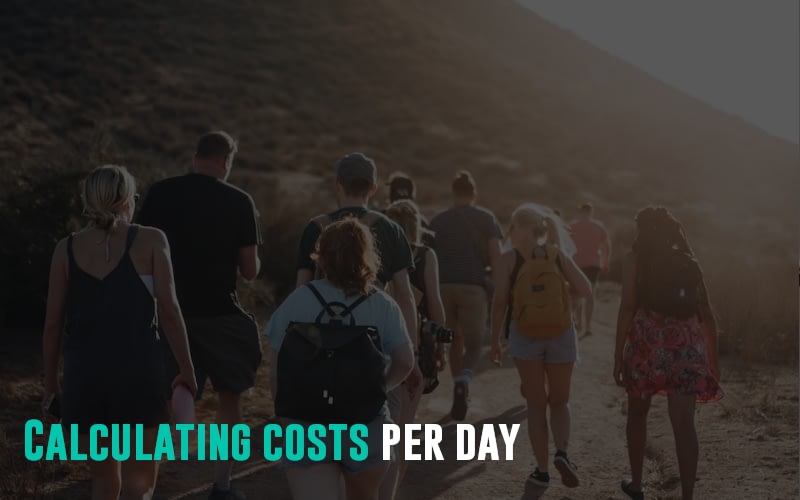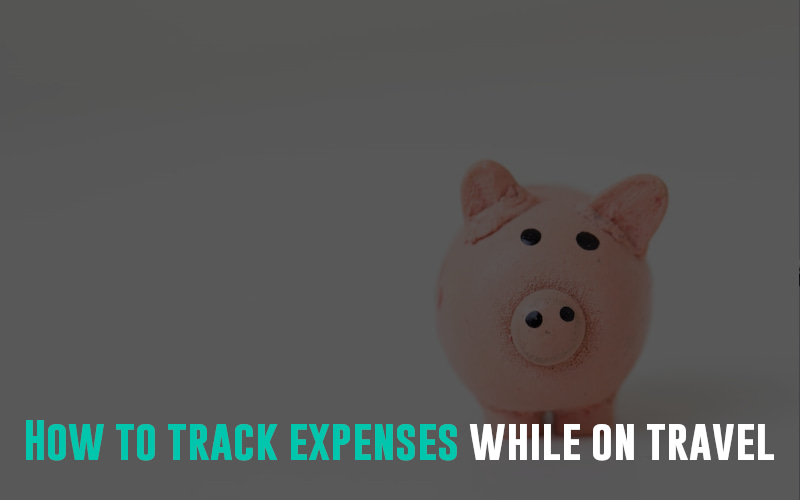Everyone loves going on vacations and exploring new places. But these trips can be expensive, especially in this post-pandemic economy marred with high inflation. With the holiday season picking up and people getting ready to travel again, you can expect everything from hotel rooms to flight tickets to sell at higher prices. So, you need some budgeting tips to turn your travel dreams into a reality without breaking the bank.
In this article, we will look into some special tips to budget your trip and check out everything from creating a yearly travel budget to keeping track of expenses while on the go. So, let’s dive into it!
Featured Image Source
The art of budget trip planning
Travel planning is not just about choosing destinations and booking flights. You must also manage your finances wisely to make the trip memorable and affordable. This is especially true if you are a regular traveler or a college trip planner with a limited budget. If you are in the habit of traveling every year, there are some factors you should consider when you are a budget trip planner.
Considerations for creating a yearly budget for travel
Some important aspects you should consider before making a yearly travel budget include:
Your finances
The first thing you should look into is whether you can afford to travel during the year you are planning. Many of us can face adverse situations in life, like a layoff or business slump, depleting our finances. If you are on a tight budget, plan for a cheaper destination.
Travel goals
You should define your travel goals and priorities before starting on the budget. Do you want to explore multiple destinations or visit just one budget-friendly location? You can also save some flight money by visiting nearby destinations in one go.
Keep funds for emergencies
While traveling will give you a memorable and exhilarating experience, it is crucial to have a contingency fund in your yearly budget to cover unexpected travel expenses. These can help you in case of issues like medical emergencies or trip cancellations. The traditional wisdom is always to have 6 months of reserve available so that if it gets tough, you have enough to support yourself 6 months in an emergency outside of your travel budget. Consider increasing your travel budget by an additional 15-20% for an extra buffer for safety, too, or spending cash towards the end of the trip for dynamic planning.
Big cost items to consider in travel
Traveling is costly; there are no two ways to do it. So, when planning your travel budget, it’s crucial to break down your expenses into different categories and decide how you want to allocate funds for each.
Flights
Flight costs can depend on several factors like destination, time of booking, and airline choice. Some airlines may also give better deals for bookings. Always research extensively on deals, airline cards, etc., before deciding on when and how to book your flights. You can keep around 30% of your total budget for your transportation and flight charges.
Accommodation
Another costly affair during travel is your accommodation. Luxury hotels can burn a hole through your wallet even if you stay for a few days. Many popular destinations offer budget-friendly hotels and hostels. You can also try camping wherever possible to limit the accommodation charges. Always consider the different cost averages before making a decision. Keep around 30% of your total budget for accommodation.
Transportation
While flight charges are a part of transportation costs, local transit options can also add up to form a hefty amount. Try to use public transport like buses wherever possible rather than Uber or car rentals.
Food
There is no denying that indulging yourself in the local cuisine is one of the best parts of traveling. But if you don’t plan your meals wisely, costs can add up quickly while traveling. If you are staying in homestays or hostels with kitchen facilities, try to buy groceries sometimes rather than always hitting restaurants. Food and souvenir shopping can be around 20% of your budget. Also, factor in tipping needs.
Activity/site fees
You should factor in the costs of activities and entrance fees to tourist sites you plan to visit. You can research options for discounts, group rates, or bundled tickets to save money. Keep 10% of your total budget for activity and site fees. Remember to reserve 10% of your budget for miscellaneous purposes.
Calculating costs per day for your group/family
Calculating cost per day during your travels can be an excellent way to keep your travel expenses within your budget. There are several factors you should consider before trying to estimate per-day costs as a budget trip planner.
Group size
Your daily budget can be affected by whether you are traveling in a group or by yourself. The accommodation and transportation charges can be high when traveling as a group. But you may get group deals for site or activity fees when traveling. Some airlines also offer special discounts for group bookings.
Destination costs
Some destinations with a higher cost of living, like Switzerland, are very costly. So, if you are on a shoestring budget, try to design your daily budget to save money wherever possible.
How to track expenses while on travel
While budgeting is excellent, you may often find it difficult to follow it to the T. This is where tracking on the go can be helpful. Some tips you can use for this include:
Set a daily spending limit
You can avoid overspending by deciding on an appropriate daily spending limit. If you feel you might cross it, try to cut down on unnecessary spending, like splurging on souvenirs.
Keep receipts
Holding onto receipts is a great way to track all your purchases, from meals to souvenirs. You can use them later to reconcile your expenses and check if they align with your budget plan.
Review your expenses
Take some time at the end of each day to review your expenses and ensure you’re staying within your budget. If you feel like you are overspending, adjust it as necessary.
Use expense-tracking apps
There are numerous apps available in the market right now that you can use to keep yourself from overspending on a vacation. Apps like Expensify and PocketGuard can help you track expenses and plan accordingly. If you travel in a group, apps like Splitwise can help you efficiently divide the expenses.
Be flexible
Planning is essential when traveling, and even though you plan for everything meticulously, unexpected things can happen. It is always wise to build in extra wiggle room to accommodate unexpected expenses or emergencies. You should have a cushion in your budget to ensure that you can handle unforeseen circumstances without derailing your entire trip.
An example of a reasonable budget
Now let’s consider a reasonable budget for a 7-day trip for one person:
- Flights: $400
- Accommodation: $500 (staying in budget-friendly hostels)
- Transportation: $200 (local transportation and some taxis)
- Food: $350 (mix of dining out and groceries)
- Activities and Site Fees: $150
Total Budget: $1,600
This can vary drastically from place to place and according to individual tastes.
Conclusion
Budget trip planning is an excellent skill if you love to travel the world without straining your finances. By understanding your travel goals, carefully planning the details of your trip, and allocating funds wisely, you can enjoy your vacation worry-free. Travel-Wise offers its users excellent travel budget templates where you can include the overall trip costs. You can also plan your trip itinerary with Travel-Wise, incorporating budget-friendly options for accommodation, transportation, and activities. Check out Travel-Wise today to make your vacation dreams a reality!





